by Brandon Schatz
As the whispers from last week’s Diamond Retailer Summit turned into audible noise, it quickly became apparent that the rumours were true: after 28 years with the company, Bob Wayne would be retiring from DC Comics when the company moves across country early next year.
By all accounts, Wayne was and continues to be a defining voice in the industry. Before taking a job with DC in 1987, he was the owner/operator of Fantastic World’s Bookstore in Fort Worth Texas, a concern that he ballooned into a chain of stores within the span of six years. Having worked in the trenches, Wayne knew and appreciated the needs of the retailer, and kept those needs in mind as the direct market continued to morph and changed into the creature it is today.
When the direct market first started to form in the early 70s, it was quite different. While today, it denotes the system from which retailers purchase and receive product form one large distributor, it originally functioned as a bypass. Retailers would order comics directly from the publishers themselves, removing the middlemen completely. Intended as a supplement to traditional ordering methods, it eventually became quite similar to the systems it was designed to cut out. Much of this was down to necessity – over the years, the direct market went from something fairly niche growing slowly at the sidelines, to something all encompassing and overwhelming during the 80s and early 90s.
By all accounts, Wayne’s presence during this time of growth yielded immeasurable benefits. Having someone within the sales structure who understood the needs of retailers – who were and are, for all intents and purposes, DC’s real customers – allowed him to craft systems that took into account retailer needs. He pioneered DC’s retail contact department, which I utilize each and every week to order reorder books that have vanished from my shelf, and to restock books that have come back into print after short periods of unavailability. He was one of the first people to push for return ability for products that retailers would deem as risky purchases, which opened the door for the current “Final Order Cut-Off” system, which grants retailers the ability to adjust their orders right up until the point a company needs to send their books off to print, rather than the moment initial orders are placed months ahead of time.
A DC without Bob Wayne is a concerning beast. All one has to do is take a trip a back to DC’s most recent large scale structure change that saw Diane Nelson take the top spot in the company, with Paul Levitz transitioning back towards writing in a move reminiscent of the old Marvel days where old editors were “paid off”, so to speak, with guaranteed writing gigs. It was a moment that seemed to change the company at the core, and set it on the course it remains on today. Without someone with a deep and abiding knowledge for the history of the medium, and the previous mistakes made, the company seems to be shifting back towards a by-gone era of mistakes that once nearly doomed the industry. Between the gimmicky covers and what appears to be a complete lack of respect for much of their talent (as evidenced by missing solicitations from their slate of September books, to the endlessly rotating creative teams and concepts on their lower tier books), DC resembles something more akin to a heartless Hollywood studios from works of fiction than a company concerned with art and character.
Without Wayne’s stabilizing influence over their sales department, can we really be sure business will continue as usual? Comics have always been a very unique medium with very unique needs that can’t quite be met by transferring means and methods used in other mediums. I would even argue that the comics medium is so specialized and particular, a person who had an intricate working knowledge of the magazine market couldn’t come in and work the system with anything approaching ease. By and large, the magazine market features product that’s returnable, whereas the comic book market does not. At first blush, that seems like a fairly simple distinction that shouldn’t garner too much of a difference, but the psychological mindset between ordering product that you can return vs. a product that you can’t is staggering. With returnable product, the pressure is on the company to push the product to the readers. A retailer becomes a glorified delivery method, a means of getting product into the hands of those who would experience it. With a non-returnable product, the brunt of the pressure is on the retailer to sell the product – they are making the decision as to what to order and how best to serve their customers. It would be very easy for someone to waltz into Wayne’s position and misinterpret the needs of the system. Anything less than recognizing retailers as the customer in a non-returnable system could spell a certain kind of disaster. While it always behooves a sales department to get the word out to the general consumer, forgetting the retailer in the equation would lead to a lack of product on the market, defeating any marketing put forth. It would also be disastrous if a sales department decided to rest on their laurels because the product is non-returnable. While the fact that comics are non-returnable would make a magazine salesperson salivate with envious glee, it should not be taken as permission to ignore the needs of the retailer. At the end of the day, they are your mot important customer, the people who decide whether or not your comics are successful or not (given the current distribution system), and treating them in such a dismissive manner will eventually result in much lower sales.
While it’s hard to say what the industry will look like without Wayne, it is easy to say it was all the better for his presence. Like many others have said, DC’s current placement in the market, a distant second, is not so much a comment on Wayne’s sales acumen. DC is trailing despite his efforts, not because of them. He knows what he’s doing. Who knows what will happen if DC hires someone who doesn’t.

[Brandon Schatz has been working behind the comic book counter for eight years. He’s spent the past four as the manager of Wizard’s Comics and Collectibles in Edmonton, Alberta. In his spare time, he writes about the comics he likes over at Comics! The Blog and stares at passive keyboards and empty word documents, making secret wishes and bargains that will surely come back to haunt him. The opinions expressed are those of Schatz and do not necessarily reflect The Beat’s]


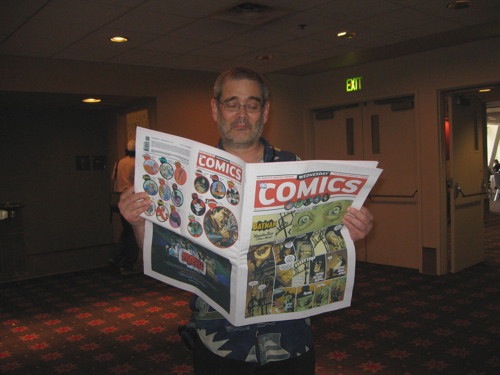
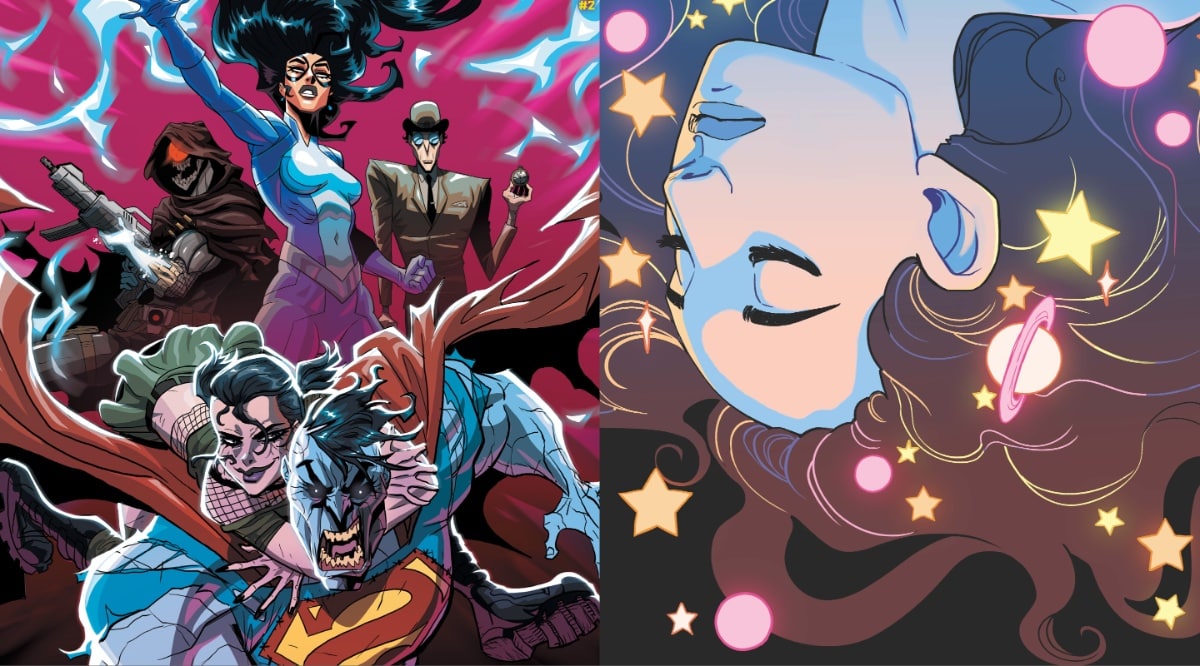
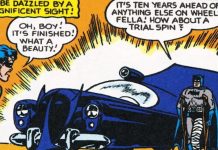
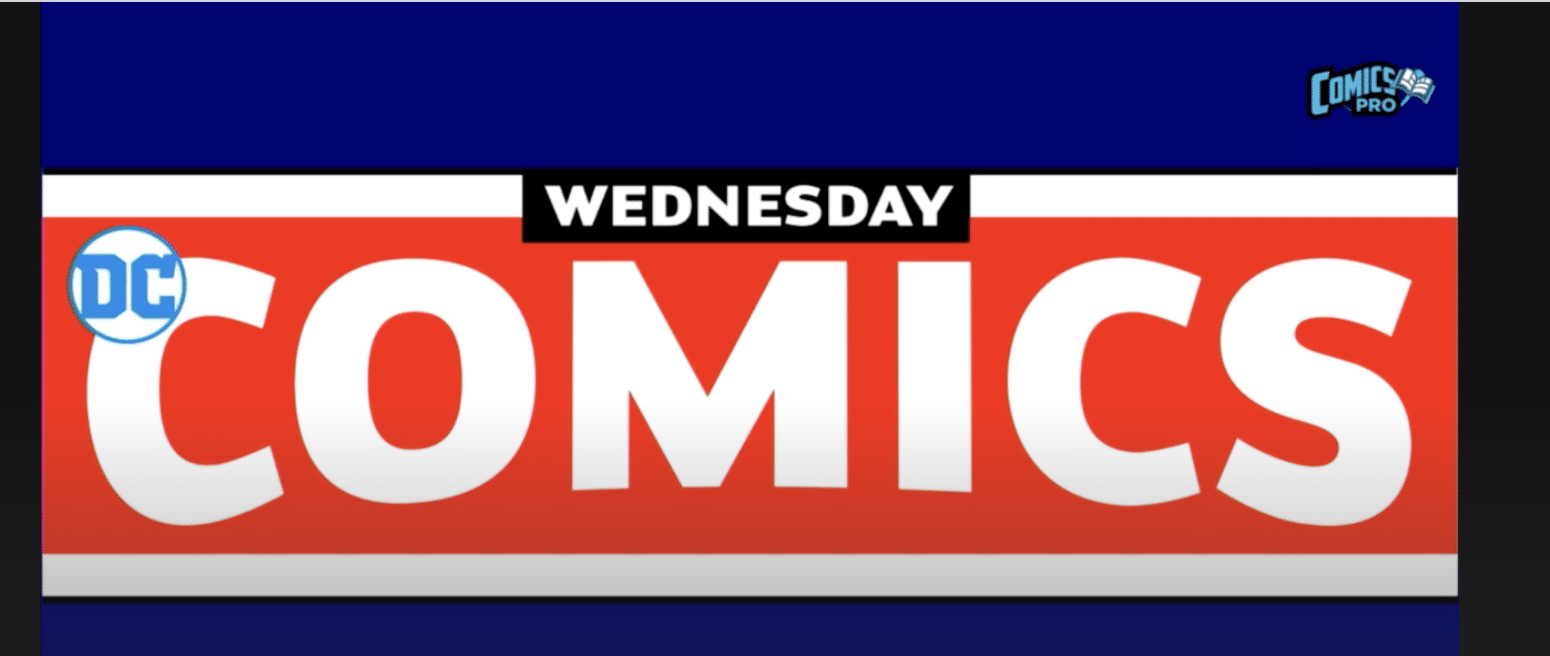
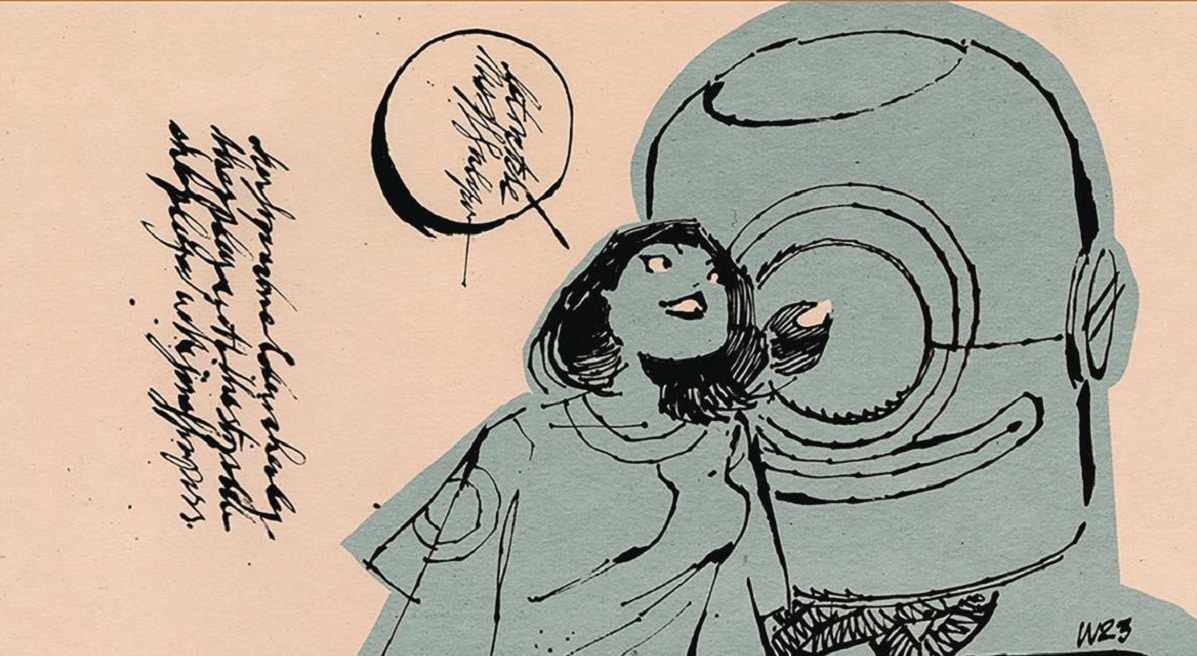

At times Mr Wayne could be a giant DB. Hopefully now that he’s gone, DC and Marvel can reprint their crossovers in nice oversize hardcovers.
“At times Mr Wayne could be a giant DB.”
Could say this about literally anyone on the planet. What a touching tribute, Bob.
Did he play a role in the “exclusive agreement” that DC formed with Diamond in the mid-90s? Back when Marvel became exclusive with Heroes World, it would have benefitted everyone (except Marvel) if DC did nothing. Instead, they formed an exclusive agreement with Diamond that effectively helped ruin other comic book distributors — and subsequently hurt most comic shops across America.
He was Retail Promotions Manager at the time. The Diamond deal looks a little above his pay grade.
@Bob – “Hopefully now that he’s gone, DC and Marvel can reprint their crossovers in nice oversize hardcovers.”
THAT’S what you get out of all this? You want some crappy stories reprinted in some overpriced book and you think that it will now happen because one person is no longer at one of the companies? Pathetic.
@Rich Even if Wayne had anything to do with that DC deal, which I can’t find any evidence of, you’re using hindsight to retroactively paint a business decision. Hindsight is great, but I doubt anyone making that deal could have seen those dominos – and more to to point, using the same logic, Marvel would be the folks to carry the blame, purchasing their own distribution when the company they purchased didn’t have the structure to meet Marvel’s needs, nor did the company know the finer points of what those needs would be. Of the two decisions, DC’s made more sense.
The comics market has been through all kinds of issues and challenges as have the publishers. It has been nice to see that some folks were able to help guide it along. I’ve had nothing but great conversations and experiences with Bob. I wish him the best in his new role-what ever that may be.
As for the next regime at DC? Who knows what the changes will bring for them or the market. I wish them the best of luck.
Comments are closed.